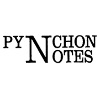Abstract
At Cornell University, where Thomas Pynchon first submitted "Entropy" to an undergraduate writing class, one of his teachers can recall trying to get Pynchon to change the title to something that didn't sound so scientific. 1 Pynchon was quietly adamant, and when his story appeared a year later in The Kenyon Review, "Entropy" it was. And rightly so, for the story certainly explores a world constructed from the scientific metaphor, and in retrospect the title seems even more appropriate, a sign of how much the idea of entropy was to inform Pynchon's later fictions. Yet the single objection of Pynchon's teacher was not altogether without foresight, for it has proven all too easy in many discussions of Pynchon to overlook elements of his narrative skill because of a preoccupation with the entropy theme. Thus, whereas nearly all of Pynchon's critics, recognizing the importance of ideas from science and the history of science in his work, have commented on the relation of entropy to Pynchon's thought, comparatively slight attention has been paid to the manner in which the narrative itself is structured by his scientific metaphors. In "Entropy" Pynchon is not simply using ideas from science for thematic effect; the more pervasive application is to be found implicit in the form of the narrative.
How to Cite:
Tabbi, J., (1984) “Merging Orders: The Shaping Influence of Science on "Entropy"”, Pynchon Notes 15, 58-68. doi: https://doi.org/10.16995/pn.387
Downloads:
Download PDF

